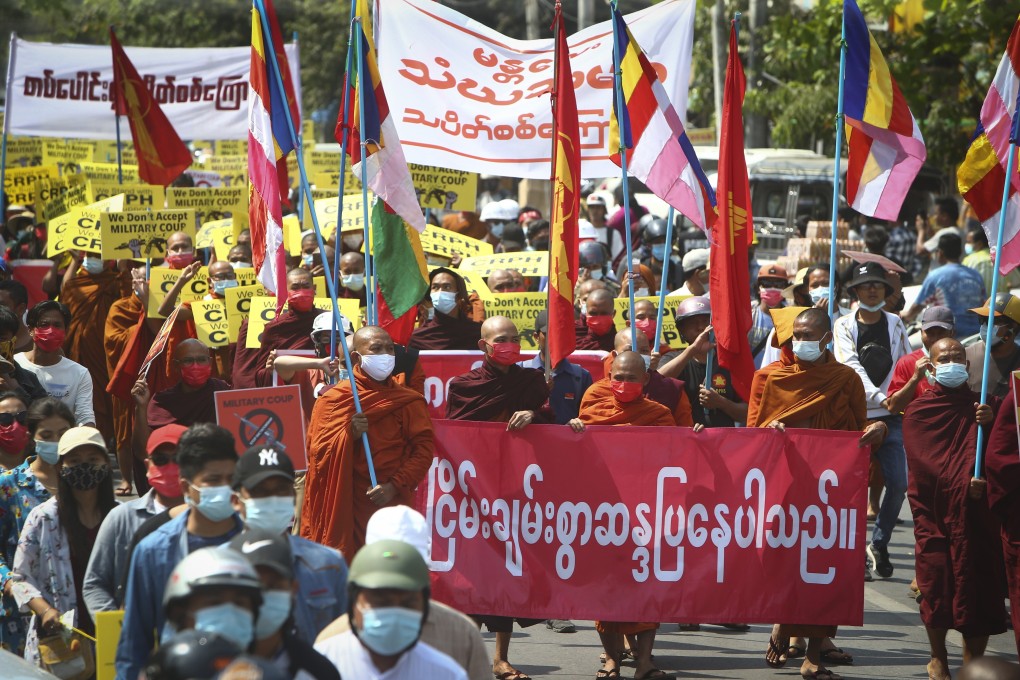As Myanmar’s protesters and military dig in, can Asean, the US or China help the situation?
- Analysts say the international community has to coordinate their response to the coup and put pressure on the junta
- Regional efforts are also seen as vital, particularly from India or Japan, though there are fears the generals do not see sanctions as credible threats

James Gomez, regional director of the Asia Centre, a Bangkok-based not-for-profit, said the escalation of violence by the military was likely in the short term, adding that the key concern was to avoid a protracted civil war which would have economic implications for Myanmar and the region.
Nehginpao Kipgen, associate professor and executive director at the Centre for Southeast Asian Studies at the Jindal School of International Affairs in India, said the scale of the civil disobedience movement (CDM) was unprecedented in previous coups or protests in the country.

03:56
Myanmar police kill at least 18 in deadliest anti-coup protests yet, UN Human Rights Office says
“While there is room for negotiation and reconciliation, it will not be surprising to see further use of lethal force and brutal crackdowns on the protesters, leading to a greater humanitarian crisis,” he said.
Canberra-based political analyst Hunter Marston said the bravery of the protesters in the face of repression from the military and police would be tested in the coming days and weeks.